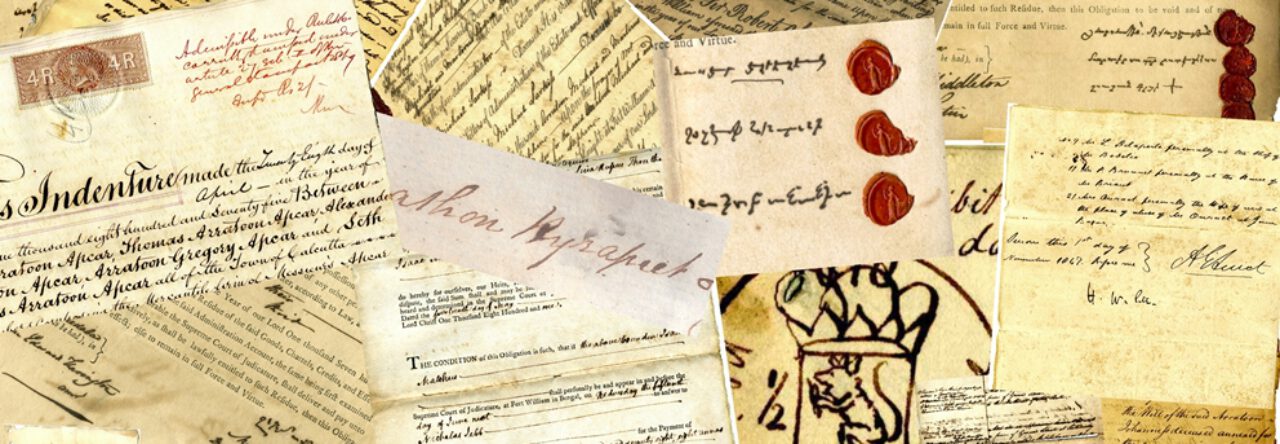- Armenian Church Dacca
- Archpriest Sahak Ayradian Archbishop of the Armenians in Persia & India pictured in the cloister of the Armenian Church at Dacca
There was a fairly large Armenian colony here during the early part of the 18th century, most of whom were engaged in the jute trade. Prominent Armenian jute merchants had their own companies, namely, Messrs Sarkies & Sons, Messrs David & Co., etc. Gradually the jute business was absorbed and monopolised by the more powerful and better organised British firms who established themselves there.
Before the Armenian community had its own church or cemetery a number of Armenians were buried in the cemetery of The Church of the Holy Rosary Tejgaon,itself built in 1677. The oldest Armenian tombstone is of Avietes a merchant who was the son of Lazar of Erivan and dated 15 August 1714. The Armenian community continued to use the church until 1794, 13 years after their own was built.
The early Armenian settlers built a small chapel in the midst of their community graveyard. By the end of the 18th century the Armenian colony in Dacca had grown considerably and the chapel was found inadequate for the needs of the community. Major subscriptions were made by Michael Sarkies, Astwasatoor Gavork, Margar Pogose and Khojah Petrus. They replaced the chapel with a Church, known as the Holy Resurrection Church which was completed in 1781 and consecrated by His Grace Bishop Ephreim. The extensive grounds on which this Church was built were presented by a well known Armenian merchant, Agah Catchick Minas. His wife, Sophia is entombed inside the church. Another merchant, Johannes Carapiet Sarkies added the belfry in 1837, which also served as a clock tower. In 1907 a parsonage was built and in 1910 the floor of the church was covered with marble, and electric lights and fans were donated by the late Mr. Arathoon Stephen of the Grand Hotel Calcutta, in memory of his grandfather Rev. Hyrapiet Gregore Bashkhoomian who was priest at the church for 15 years from 1828. He passed away suddenly on the eve of his retirement from Dacca, and is buried in the churchyard near the belfry.



